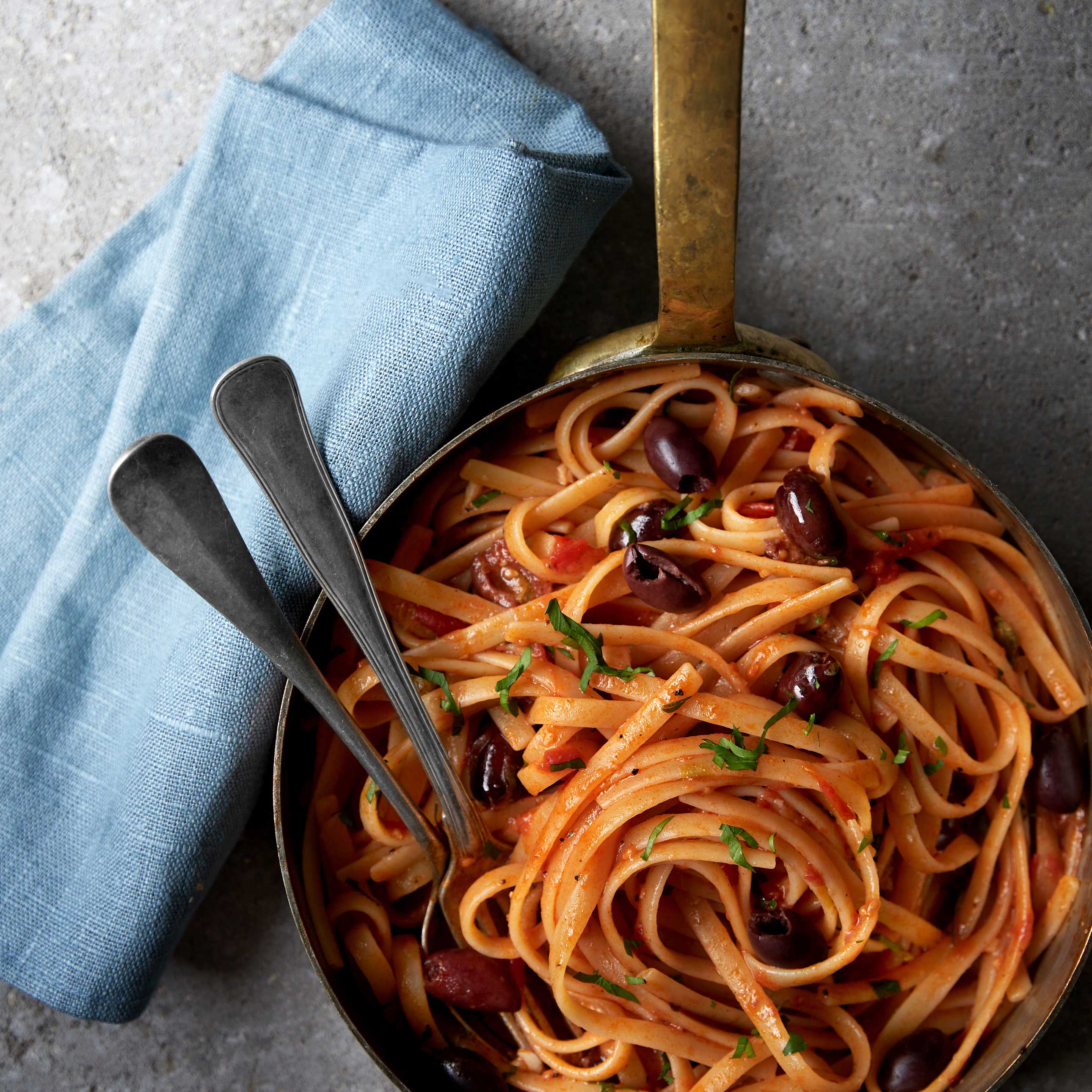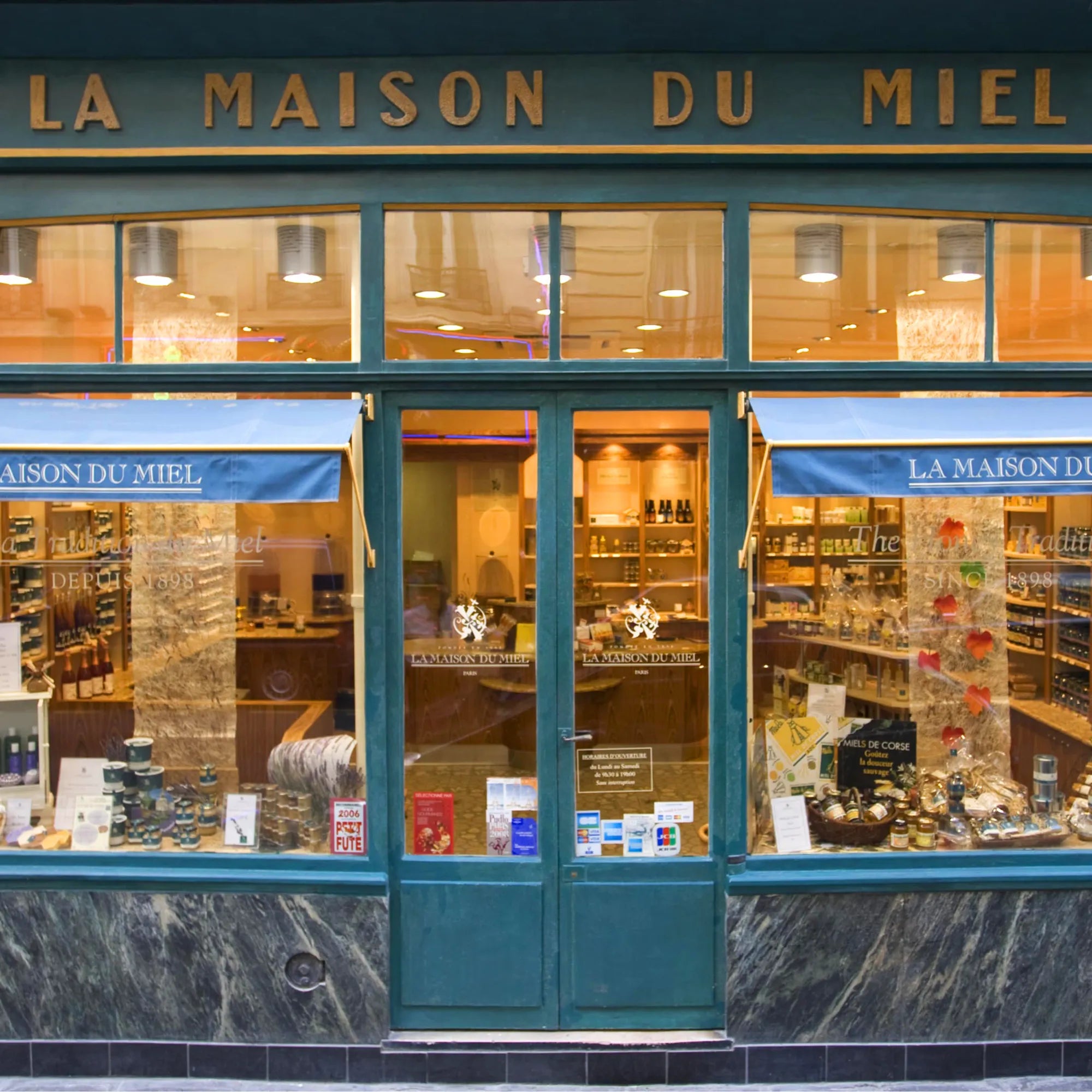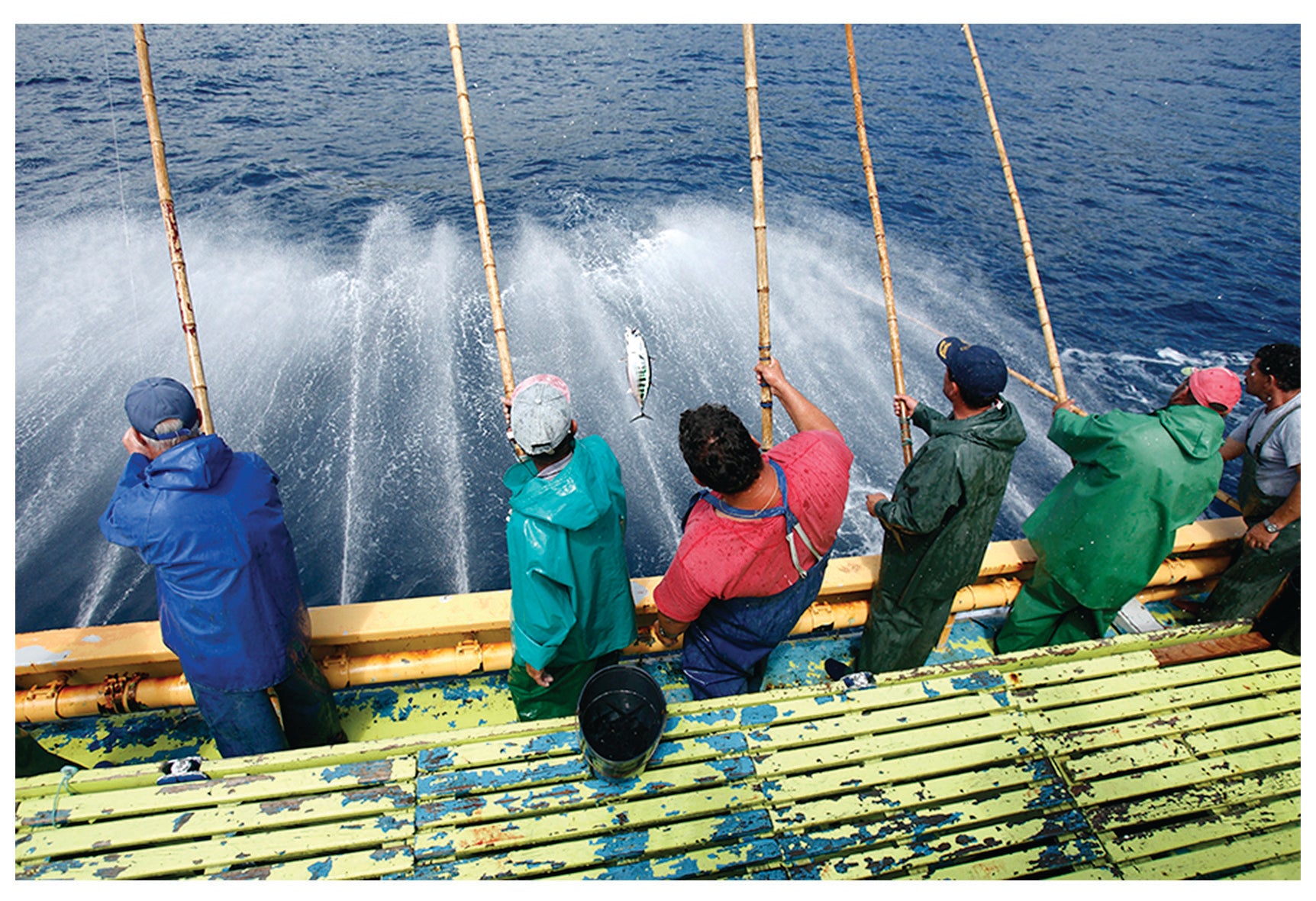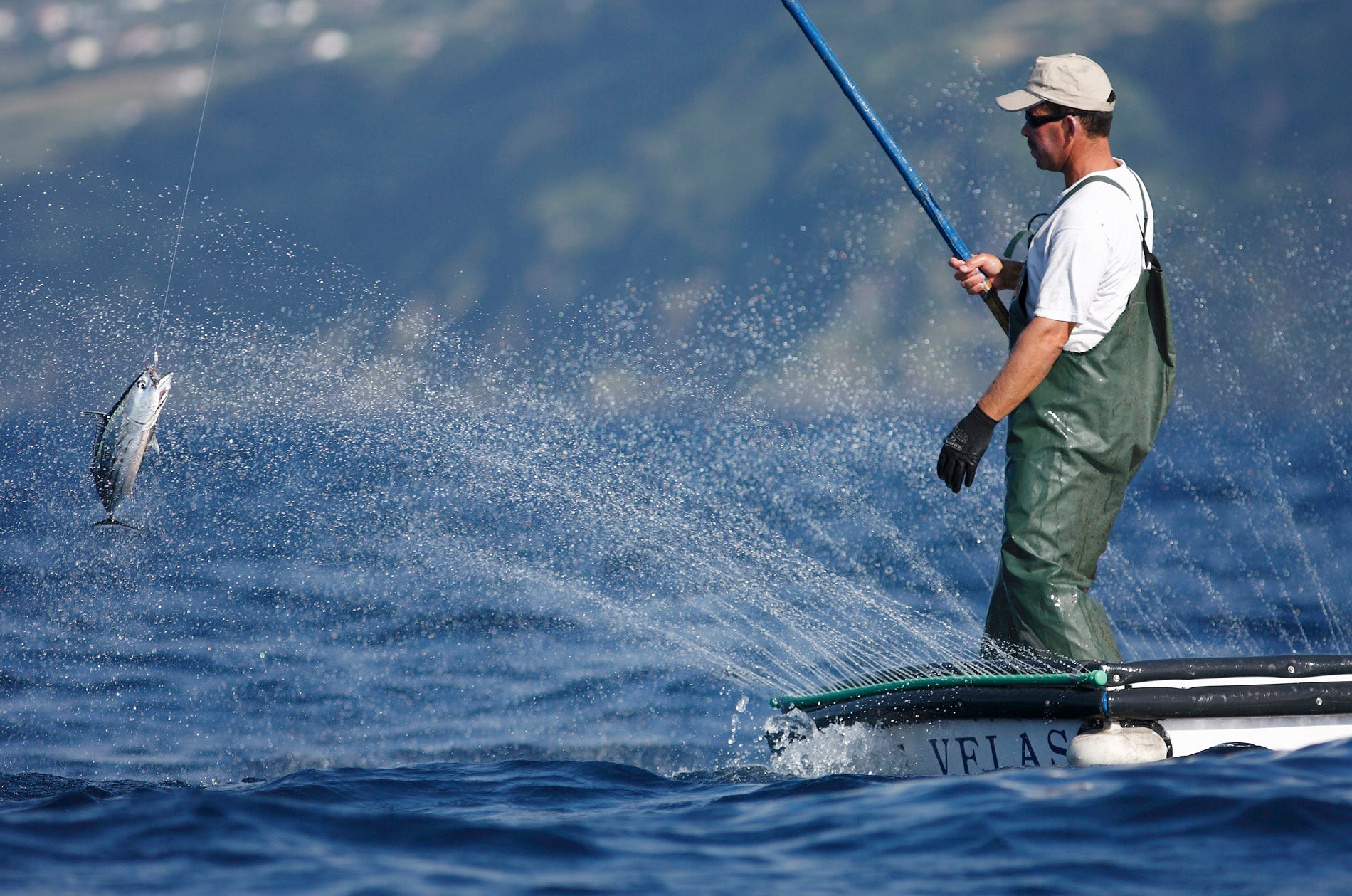Farmed fish is a term for fish that are raised in an arranged environment such as net cages in either closed environments or open waters - also called aquaculture or pond farming. In recent years, the land-based farming method has become very popular.
With land-based farming, seawater is pumped into a basin in which the water can be circulated to imitate a marine environment. When the water is replaced, it must be cleaned before it is pumped back into the sea. In farming, the fish are fed with feed that must comply with legislative requirements. When the fish are caught and subsequently slaughtered, they are all the same age.
The reason why fish are raised in these ways today is to keep up with the global demand for fish. The natural fish population generally cannot keep up, and in addition certain fisheries are associated with great damage to the marine environment, including trawl fishing which is harmful to the seabed. Fish farming avoids bycatch, which is a well-known problem when fishing with large nets.
Norwegian and Faroese salmon
It is very common to raise fish in the Nordic countries, and Norway in particular is known for its farmed salmon, of which Denmark is a major importer.
Although we often come across Norwegian salmon in the fridge, many consider Faroese salmon to be of the best quality, and this is because the salmon are most often raised in a nature-friendly way with good conditions in the ice-cold and crystal-clear Faroese water. But if you know your aquaculture, Norwegian salmon farming can also compare with Faroese salmon. The difference between Norwegian and Faroese salmon can also be seen in the price - here, Faroese salmon is significantly more expensive than Norwegian salmon.
At Grøndals, we do not compromise on quality or sustainability, and we want to make it easy for the consumer to choose responsibly produced salmon. That is why we have carefully selected our tasty salmon, which both originates from Norway and the Faroe Islands, and which is ASC certified.
CO2 and fish farming
Although fish farming sounds like the best solution to the problem of overfishing, bycatch and damaged seabeds, fish farming is a big burden on the environment, as the fish have to be fed with large amounts of fish feed. The fish feed must be produced either on land or by catching wild fish.
In addition, there is a risk of pollution and poisoning of the surrounding marine environment, as the fish, which are kept in cages and in certain farms, are exposed to antibiotics and pesticides to protect them from diseases.
Precisely for this reason, strict requirements have been established to avoid these risks.
Fish farming and pesticides
The Danish Veterinary and Food Administration carries out strict checks and random samples of fish and fish feed to avoid contamination or other unwanted substances. The tests are carried out both on fish and feed from Denmark and on fish imported from abroad. Salmon from Norwegian fish farms has shown a very low content of the substances dioxin and PCB, which will not affect the individual's health.
The mentioned substance mercury, which can affect the nervous system, has also been found in low levels in farmed fish. Farmed fish do not get to grow very large, as the lifespan is lower than wild fish. All in all, the Danish Veterinary and Food Administration assesses that there is no cause for concern when you as a consumer go to the supermarket and buy a farmed fish.
You can be aware of this as a consumer
Look for the ASC label when you buy fish. ASC is the world's leading certification scheme for fish farming, which is the consumer's benchmark for a more environmentally friendly and socially responsible aquaculture company.
If you as a consumer are interested in ecology, there is organic fish farming. These fish are fed exclusively with organic fish feed, which often contains a natural content of astaxanthin, which can affect the color of the fish.
Frequently asked questions
What is fish farming?
Fish farming is fish that live and grow in net cages in the sea or in closed environments. The fish are fed fish food and are all the same age when they are slaughtered.
Why fish farming?
Farmed fish have a shorter lifespan than wild fish, which affects the amount of mercury. Fish with a shorter lifespan, which are not part of the food chain, contain far less mercury.















Leave a comment
All comments are moderated before being published.
This site is protected by reCAPTCHA and the Google Privacy Policy and Terms of Service apply.